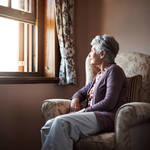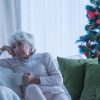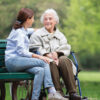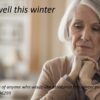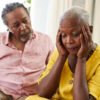With winter on its way bringing another dreadful wave of the virus, we all have to be ready to protect vulnerable adults in our community.
It is already proven that elderly people and individuals with underlying conditions as cancer, heart, lung disease or diabetes are at high risk of severe illness from COVID and flu and the scientists have advised that it’s very likely for the COVID to be co-circulating with the flu.
While for most people flu is just an unpleasant disease that’s usually recovering in about a week or so, for older people and for those with underlying disease, such as chronic respiratory or cardiac disease, even a flu can be fatal.
With COVID circulating and the start of the Flu season approaching, our main priority is keeping our clients safe during the coming winter months and to do so we put in place a winter infection control and prevent plan ‘’How to Protect Yourself from COVID and Flu’’. The plan is designed to offer guidance for our clients and staff on how to protect themselves and the others around them.

Know how it spreads
- The best way to prevent illness is to avoid being exposed to COVID or Flu
- Both are spread mainly from person-to-person.
- If you are in close contact with one another – less than 2 metres it increases the risk
- The virus is spread when an infected person coughs, sneezes or talks. Some people may not have symptoms of COVID. With Flu people can spread the virus days before they become ill.
Avoid close contact
- Follow social distancing rules: stay 2 metres from people where possible
- Think about the people you mix with – are they mixing with lots of people?
- Stay away from people who are sick
- If you are at risk of becoming unwell with COVID or Flu, avoid crowded places
Monitor your health
- Get a Flu vaccine
- Be aware of what the signs and symptoms are of Flu and COVID
- Stay at home and away from others if you are unwell
- Get a COVID test
- Sign up to the COVID symptom study app on your smartphone
- Use the new NHS Covid-19 contact-tracing app
Wear a Face Covering
- Cover your mouth and nose with a face covering when you go into public places and on public transport
- Everyone should wear a mask in public settings and when around people who don’t live in your household, especially when other social distancing measures are difficult to maintain.
- You do not have to wear a mask if you are exempt.
- You can find out more information on this from the
- Government webpage: ‘Face coverings: when to wear one, exemptions, and how to make your own’
Wash your hands
Wash your hands often with soap and water for at least 20 seconds
It’s especially important to wash:
- After coughing, sneezing or blowing your nose
- Before eating or preparing food
- Before touching your face
- After using the toilet
- After travelling on public transport
- Visiting a public place
- After handling your mask
- After caring for someone sick
- After touching animals or pets
If soap and water are not available, use a hand sanitiser that contains at least 60% alcohol. Cover all surfaces of your hands and rub them together until they feel dry.
Everyone working in healthcare knows that every single contact with a vulnerable person it must be a COVID-19 secure contact. To make this possible, this winter, at Midian Care we are determined to give our staff all the support they need, making sure they have enough and appropriate supplies of PPE, along with regular testing for both staff and clients, up to date infection prevention and control (IPC) training and access to the latest information and guidance from the government.



